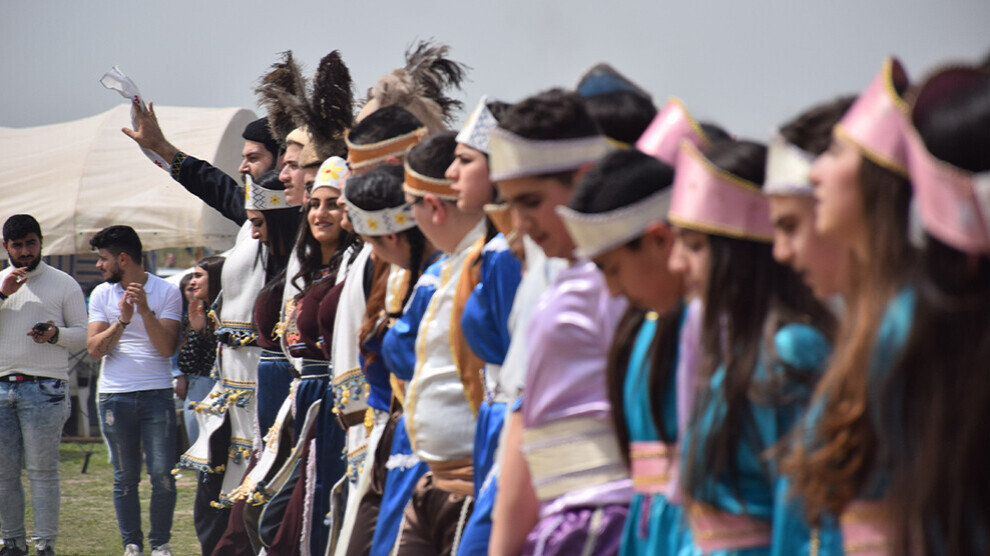Assyrian New Year Akitu celebrated in Rojava
In the northeast of Syria, the Christian Syriacs have celebrated the Assyrian New Year Akitu.
In the northeast of Syria, the Christian Syriacs have celebrated the Assyrian New Year Akitu.

In northeastern Syria, the Christian Syriacs celebrated the Assyrian New Year Akitu on Friday. The Akitu can be traced back to a millennia-old tradition and is one of the oldest festivals in the world. It originated in the ancient Sumerian civilization of Mesopotamia and is celebrated for the 6,772th time this year. Since the Sumerian period, similar festivals can be traced in many Mesopotamian cities, such as Uruk. Since all Mesopotamian cultures were highly dependent on agriculture, most of their festivals were associated with the annual cycle of nature.
The Assyrian Akitu festival begins after the equinox on March 21 and culminates on April 1. This day marks the date for barley sowing. Until the late second millennium B.C., two festivals with processions and religious rituals lasting several days were celebrated, namely for the barley sowing and later again for the barley harvest. Today, the festival has no religious significance, but rather a cultural and political one. Since festive traditions around the beginning of spring and sowing are of particular importance in the context of the Neolithic Revolution and the beginning of organized agriculture, it can be assumed that Akitu is much older and was characterized by the cult of goddesses in early times.
The central Akitu celebration in Rojava was celebrated in the village of Tall Arbush. The Assyrian village is located in the Khabur Valley, about twenty kilometers southeast of Tall Tamr (ku. Til Temir or Girê Xurma), and administratively belongs to the canton of Hesekê. Hundreds of people took part in the celebration, including notable figures from civil society, politics and the military. From the structures of the Syrian Democratic Forces (SDF) were, among others, the YPJ commander Newroz Ehmed, the SDF spokesman Aram Hanna, as well as Ferhad Şami, the press officer of the fighting federation, and Matay Hanna from the Syriac Military Council (MFS).
Salute to "Fraternity of Peoples”
After a minute of silence for the martyrs, the ceremony continued with messages from the Assyrian Unity Party and the "Assyrian Democratic Organization." May the New Year mark the beginning of peace, love and tranquility, wished the organizations, among other messages. Matay Hanna congratulated all Christian peoples of the country on the New Year and said Akitu is the moment of renewal of spirit, nature, harmony and civilizations.
Newroz Ehmed spoke of a "common culture" that the peoples of the region have shaped together, and paid tribute to the merit of the martyrs of Rojava. Only thanks to their sacrifices, he said, are the peoples in the region able today to celebrate festivals such as Akitu and Newroz in a relaxed and expansive manner. At the end of her speech, the commander saluted the "fraternity" of the peoples of Rojava, which has a unique diverse society with a mosaic character. The program continued with musical contributions, folklore performances and plays.
Celebration in Tirbespiyê
Akitu was also celebrated yesterday in Tirbespiyê - although the mood was rather subdued due to the drone attack near the town in eastern Qamişlo. Among those attending was politician Nazira Gawriye, who is co-chair of the Syriac Unity Party. "I congratulate all Syriacs in Syria and around the world who celebrate Akitu. My hope is that this celebration will bring peace, freedom and stability, also to the people here who are facing war and death," Gawriye said.
Akitu has been a public holiday in northern and eastern Syria since this year by decision of the Autonomous Administration of North and East Syria.